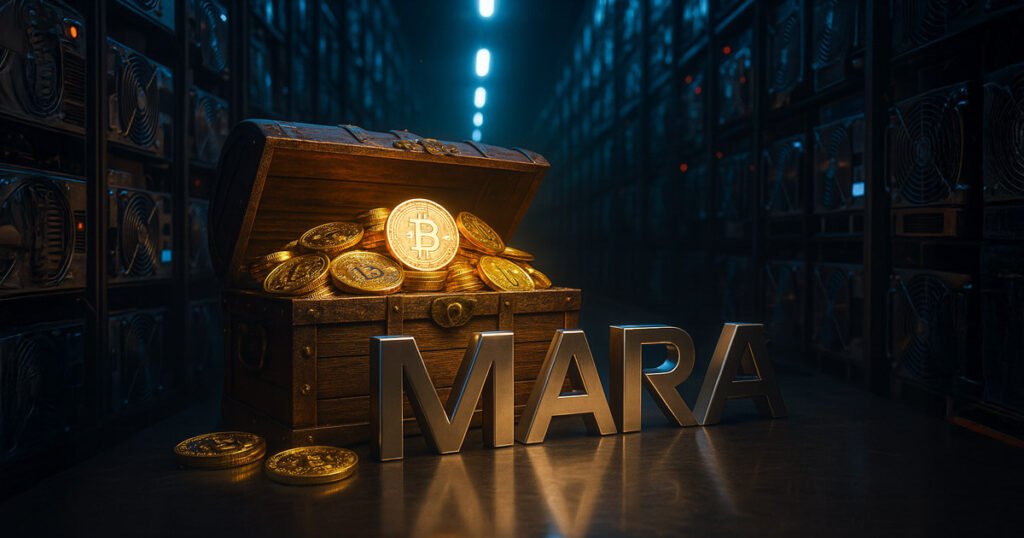MARA: Shaping the Future of Bitcoin Mining and Holdings
MARA (previously Marathon Digital) has recently announced a significant increase in its Bitcoin holdings, now totaling 49,940 BTC. This impressive accumulation positions MARA as the second-largest public corporate holder of Bitcoin, trailing only Strategy (formerly MicroStrategy) in terms of publicly disclosed corporate reserves. With a treasury valued at over $5.4 billion at current market prices, MARA is at the cusp of a major corporate milestone. This development not only highlights the company’s growing influence in the cryptocurrency realm but also signals a changing trend within the Bitcoin mining market.
The strategic shift in MARA’s Bitcoin holdings reflects a broader behavioral change occurring among cryptocurrency miners. Traditionally perceived as constant sell pressure sources, many miners are transitioning towards becoming long-term holders of their produced assets. This change is evident in market dynamics, where exchange balances of Bitcoin are hitting multi-year lows. The reduction in Bitcoin available for immediate trading is closely linked to the long-term holding strategies being adopted by miners, which could ultimately affect the market’s supply-demand curve, especially as interest from instruments like spot ETFs rises.
Fred Thiel, MARA’s Chairman and CEO, recently elaborated on the company’s operational focus, emphasizing a vision to transition MARA into a vertically integrated digital energy and infrastructure company. This strategy aims for tighter operational control and improved cost-efficiency. In a June 3 update, Thiel noted that the company achieved record-breaking BTC production in May, producing 950 BTC—marking the highest output since the recent April 2024 halving event. This focus on vertical integration is intended not just to maximize productivity, but to position MARA favorably amidst evolving market landscapes.
However, the company faces significant challenges, particularly from the artificial intelligence (AI) sector, which is increasingly competing for energy resources. In an interview with Bloomberg Television, Thiel acknowledged that AI entities can afford to pay higher prices for energy, straining the Bitcoin mining sector. This heightened competition for power could fundamentally alter the economics of mining, possibly favoring large-scale operators with established access to low-cost energy contracts. The need for cost-efficient energy solutions may redefine the mining landscape, pushing MARA and its peers to adapt strategically.
With its substantial Bitcoin-heavy balance sheet, MARA’s financial positioning is set to capture investor interest, particularly as the company prepares for its upcoming second-quarter earnings report, anticipated for release in August. Current analyst forecasts estimate an earnings per share of -$0.41 for the quarter ending in June. The results of this report will likely reflect not only the company’s operational efficiency but also its ability to navigate the challenges posed by both energy competition and broader market fluctuations.
MARA’s growing Bitcoin reserves, coupled with the shifts in miner behavior, signal a transformative phase in the cryptocurrency landscape, with potential implications for investors, market dynamics, and the future of Bitcoin mining. As the sector evolves, companies like MARA that embrace strategic, long-term holding and operational efficiency may find themselves well-positioned in an increasingly competitive environment. The upcoming earnings report will be a pivotal event, providing insights into the effectiveness of MARA’s strategies in the face of emerging challenges.


